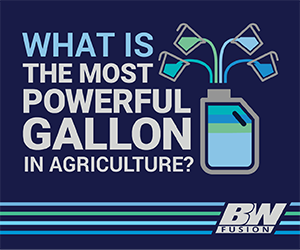Biotech Crops: Fighting Fear Fanatics
And the battle rages on. Not too many months ago (in February, to be exact), I wrote a column where I described how I believed the anti-biotech crop fight was beginning to turn in the pro camp’s favor. For evidence of this turn, I cited the defeat of California’s biotech crop labeling proposal (Proposition 37) by popular vote, the acceptance of biotech cotton among Chinese growers and long-time critic Mark Lyons’ about face on the issue of biotech crop use.
“Maybe now, agriculture can go back to doing what it does best — feeding a growing world population instead of consistently fighting irrational fears,” I said back then.
But I apparently spoke too soon. Since that time, there has a been a host of negative biotech crop news, much of it gleefully touted by the anti-biotech camp. This included the discovery of biotech wheat in a single Oregon wheat field (which is still an unsolved mystery, according to USDA researchers), the burning of biotech crop test fields in the U.S. and overseas and the announcement that Monsanto intended to drop its requests to grow new biotech crops in the European Union “due to the lack of commercial prospects there.”
Accompanying each of these stories online have been comments from readers. On most, anti-biotech have outnumbered those by industry defenders by a wide margin. Worse still, many of these have reiterated the often repeated claim that “large agricultural profiteers are trying to poison unsuspecting regular folks with unproven (or unholy) products.”
How did this latest negative wave of biotech crop stories come about? In a word, the pro-biotech crop camp relaxed. With the battle wins in California and China under its belt, the biotech crop industry went back to putting out reports on the scientific safety of their products.
This misses the point, however, of today’s biotech crop debate. Because biotech crop supporters can cite volumes of information on the scientific safety of biotech crops, the anti camp has largely bypassed this argument. Instead, they have engaged in a focused campaign aimed at raising fear and misinformation among the masses. Of course, this ties into a person’s basic survival instinct to avoid anything that seems like it might be a threat to their or their family’s well-being.
As one reader pointed out, there are four groups in the biotech crop debate — the informed, the uninformed, the casually informed and the highly organized/committed anti-activists.
Trying to reach this last group is virtually impossible. To them, fighting against the spread of biotech crops is akin to a religious view. And the informed know. Instead, getting the true facts on biotech crops out to the uninformed and casually informed while addressing their fears will be the key to ultimately winning this fight.
To paraphrase Franklin D. Roosevelt: “The only thing we have to fear is highly organized/committed anti-biotech crop activists themselves.”






